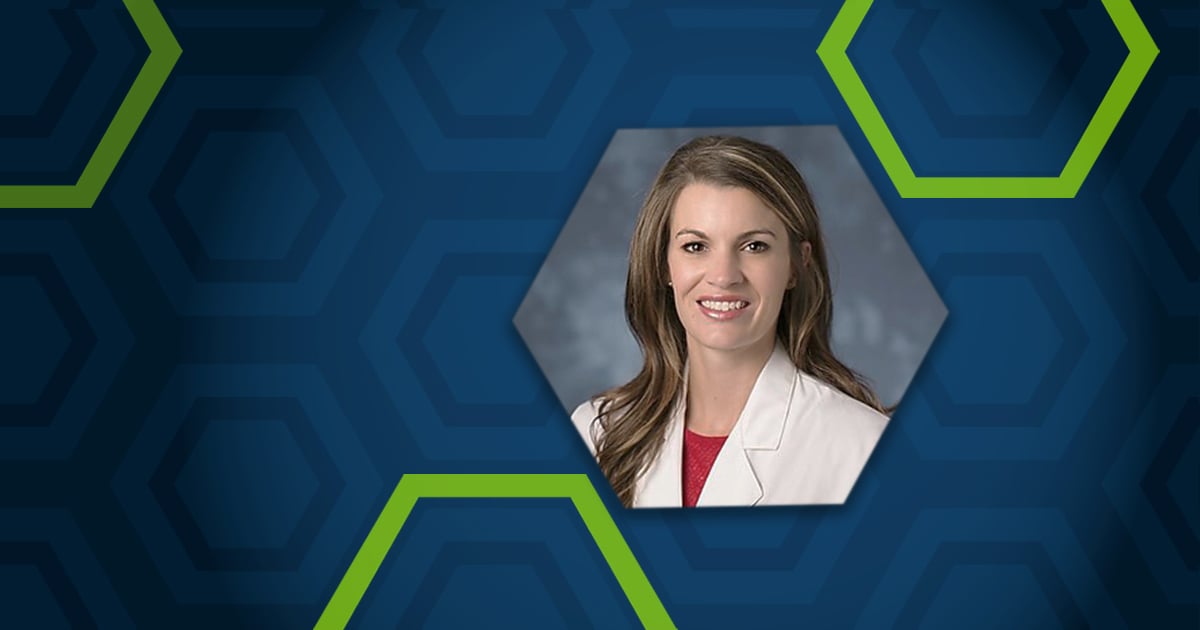We sat down with Melissa Piepkorn, M.D., neonatologist at University Medical Center in Lubbock, Texas. Dr. Piepkorn has been with the practice for nine years and currently leads the group as Practice Medical Director. She was drawn to medicine at a young age and distinctly remembers being strongly impacted by the St. Jude Children’s Research Hospital informercials and telethons. Watching those families' inspirational stories brought out her desire to help people, and she now cares for the most vulnerable patients—critically ill infants.
Watch the video for the full interview or check out the highlights below!
What does it mean to be a woman in health care today?
It’s a tricky question. I think women bring a lot to the field of medicine—they think about things differently than men do; it’s just part of our gender. The things that women are known for—the relationship building and the emotional IQ—and not that men don’t have that, but women definitely bring a different viewpoint. Specifically, in my field, we deal with babies and families. It’s not just taking care of that baby’s medical needs, but how is that affecting the family unit and how is that affecting that mom and dad’s emotional and mental wellbeing. We talk about a lot of those things—it allows me to relate to moms as well and what they’re going through.
I think having women in medicine also brought to the surface work-life balance a little bit more. We want to be moms too and we want to have lives outside of work—we want to do both of those things. And so it’s looking at duty hours, not just for safety but for quality of life and balance. I think women just naturally helped that. Our schedules are a lot better than they used to be—we’re allowed to have families and do all the things that we would do if we were not in medicine. I think that just helped the entire field, honestly.
What are some of the challenges of being a woman in medicine?
Probably the same things as far as work-life balance. I think women tend to be their hardest critic, especially working women. I tell younger women, ‘you can do all of it’—you can do everything that you want to do—you can have a family, you can have a career. It doesn’t mean that you’re going to be able to do both of those things all the time to the best of your ability. Some days it just doesn’t work out well. But I think women having in the past been told ‘you can’t do this’ or ‘you can’t do that’ or ‘you have to stay home’—when we started to venture out and do those things, I think we kind of had to say ‘well we have to be above the standard,’ ‘we have to do it the best,’ ‘we have to do it the brightest’—because otherwise, we’re going to be told ‘no you can’t do that.’ So I think we set our bar really, really high on ourselves. Sometimes the challenge is letting yourself not have a great day every day and not be able to be everywhere and be ok with that. I think we ourselves are probably our hardest challenge sometimes.
What are some of the positives of being a woman in health care?
I think again just the viewpoint that women bring to the table—just how we maybe think about things a little differently. I think anytime you have a different gender, different race or different background, everyone has different life experiences. If we’re going to be able to relate to different patients across the board, it’s helpful to have physicians that are across the board. I think it makes everyone more open-minded, and it makes everyone think outside the box a little bit more. Anybody who is different in some way can really contribute to the field of medicine just based on their experiences. And women tend to have a little bit different experiences than men just in life. I think it allows you to relate more to certain families and certain patients and just bring a different viewpoint.
How can women physicians best support fellow women physicians?
Engaging with women, sharing your story and sharing your experiences. You can feel lonely because there’s not a lot of people who understand what it means to be a woman in medicine outside of women in medicine—what does that life mean, what do you do at work, how do you manage that, what about your husband, what about your kids, how do you balance all those things. It can be lonely because people can’t really understand; even if you’re talking to them, they don’t fully understand what that means. So to have other women physicians that have lived that life and can share their challenges and successes, who you can get feedback and advice from, that’s really supportive to me. To have those women physicians that we can meet for dinner or grab a drink here and there and laugh about things at work that other people probably wouldn’t find funny. That is really supportive to me to know that there are other people who are having the same struggles and that’s ok, that’s fine—you’re going to do it, they can do it and you can do it. Supporting them in the workplace but also supporting them outside in their private lives as well, I think it’s important.
Interested in joining our team of neonatologists? Explore our career opportunities.

